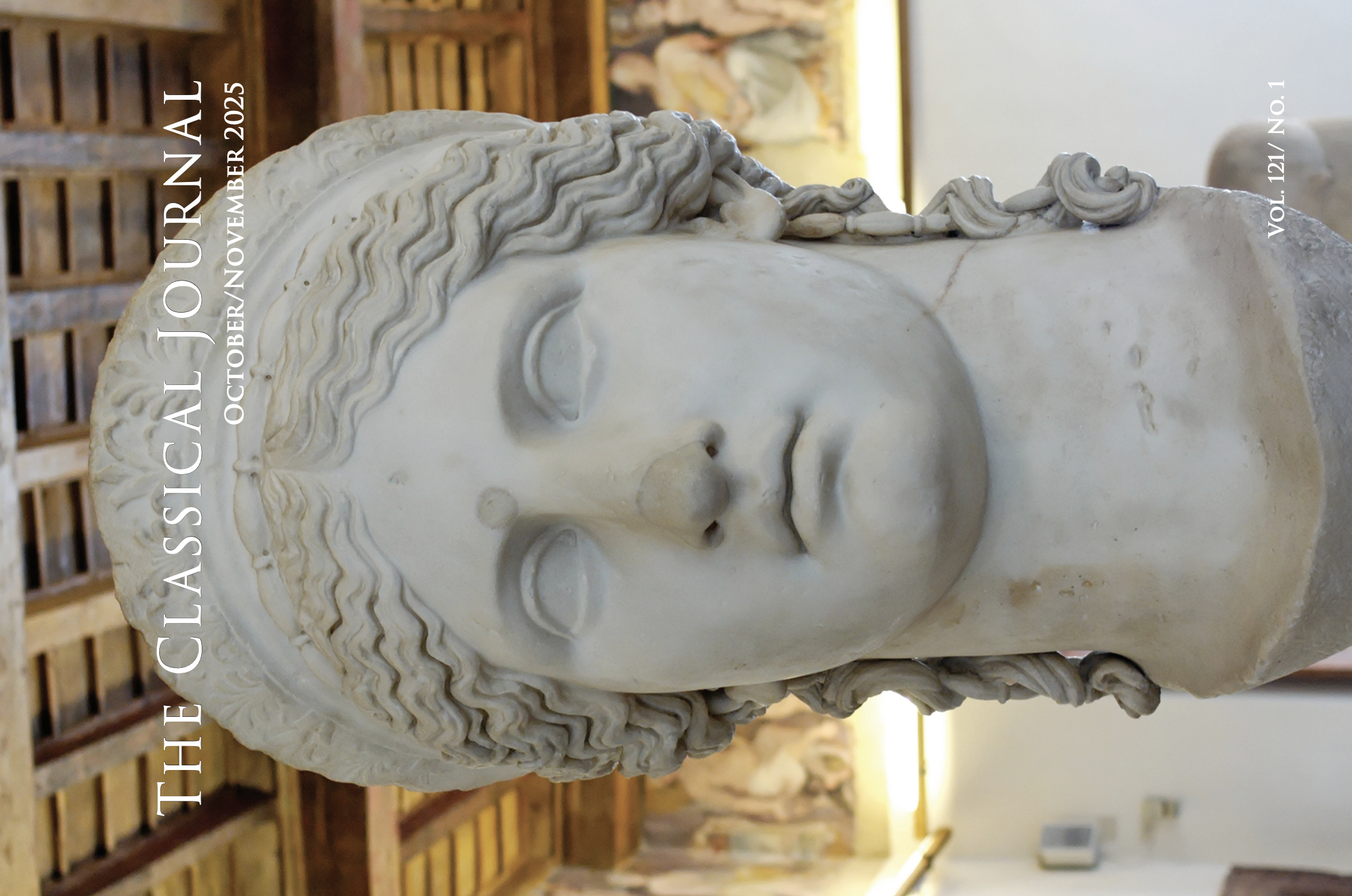The following articles are contained in CJ
118.3
Abstracts of Articles
Hippias' Synagogé: A Historiographical Misunderstanding?
In this paper we challenge a staple of modern scholarship, which considers Hippias’ Synagogé as the first instance of Greek doxographical work. In this article, I offer a fresh analysis of the relevant ancient texts and of the state of scholarship. The result of this investigation casts doubt on the real nature and scope of Hippias’ Synagogé as a mere collection of passages. I argue that this usually taken for granted interpretation does not capture what the Synagogé may have been. By contrast, I suggest restoring the entertaining nature and rhetorical strategy that lie at the heart of Hippias’ literary effort.
The Return Journey of the Argonauts and Mythical Geography in Apollodorus' Library
The return voyage of the Argonauts described in the Library presents remarkable differences compared to the model provided by Apollonius of Rhodes. Here we focus specifically on two aspects of the trip in Apollodorus’s version, with the aim of providing new insights on these elements of the story that deviate from Apollonius: the order of the stages in the Adriatic Sea and the absence of the Libyan episode. As a result, our analysis allows us to appreciate, beyond the canonical value acquired by Apollonius’s text in the early imperial period, the important role played by other local myths, even glimpsing the influence of more ancient traditions about the journey of the Argonauts. Moreover, Apollodorus’ authorial choices seem to reveal a general scepticism for the part of the mythographer regarding the possibility of adapting the landscape of the mythological traditions to the geographical knowledge of his time.
Space War: Plato's Protagoras as a Narrative of Contested Space
The setting for the greater part of the Protagoras is the notorious home of Callias. But that space is continuously re-imagined and refocalized by the various characters, Socrates included. The narrative thus passes from the comic stage and the Underworld to council-chamber, epideictic auditorium, panhellenic assembly, panhellenic prytaneum of the wise, symposium (devoted to literary culture and the testing of one’s fellow-symposiast), an occult Sparta, the Delphic seat of the Seven Sages, and the agora. With this last the contest of narrative spaces comes full circle, clearing the way for a better use of Callias’s home and hospitality (361d).
Courtesy for Corpses: Erictho's Disturbing Decency in Lucan's Bellum Civile
Erictho’s reputation as a grotesque witch seeping with malevolent power has long captivated readers of Lucan’s Bellum Civile. In this paper, I explore how the poem implicitly works against this reputation even while explicitly endorsing it. After first illustrating how her behavior in the narrative action contrasts with the original description of her character and abilities, I turn specifically to Erictho’s considerate promise to lay the reanimated corpse in her necromancy to rest. By fulfilling this promise, Erictho spotlights unsettling conversations of agency and bodily autonomy in Lucan’s poem: especially as her behavior contrasts with Lucan’s own as he populates his epic with reanimated corpses of a different kind.
LATIN IN MODERN FICTION: WHO SAYS IT’S A DEAD LANGUAGE?: ALDOUS HUXLEY:
Henryk Hoffman provides a brief introduction to his book and his selection on Aldous Huxley (with the permission of his publisher).


